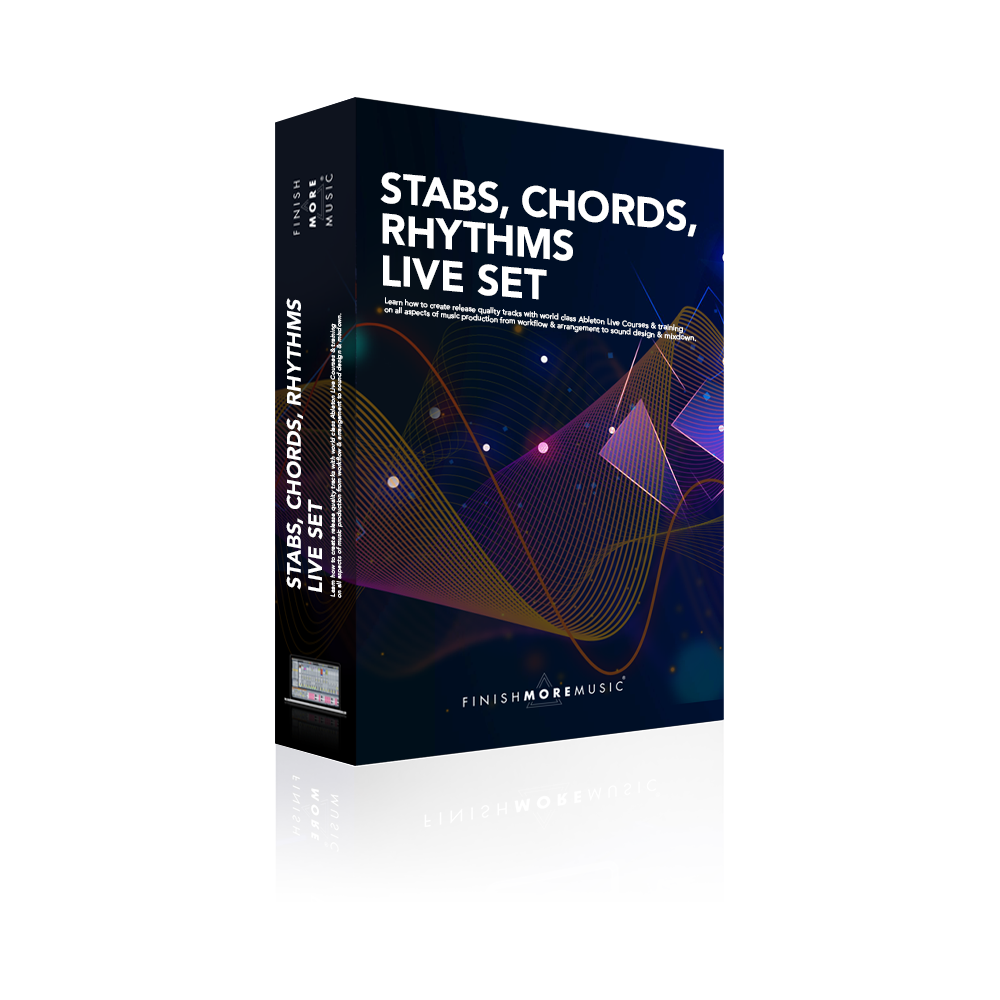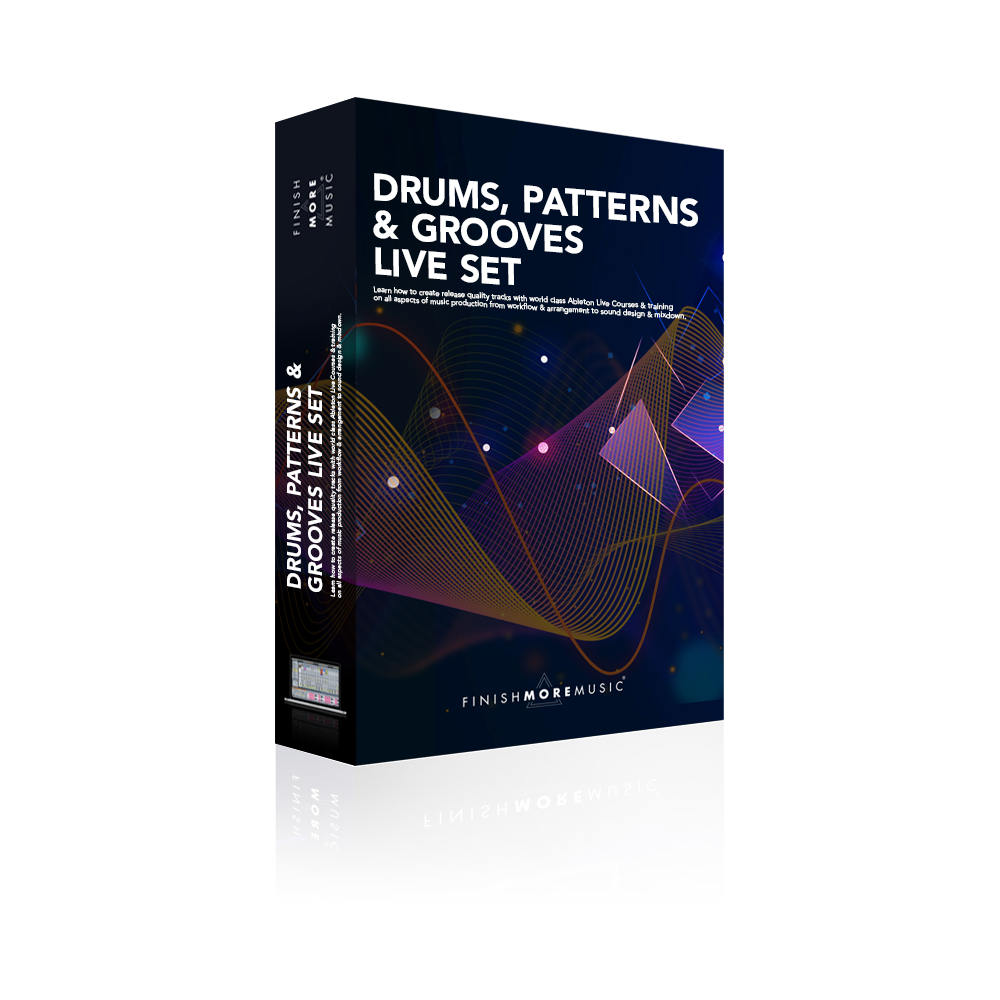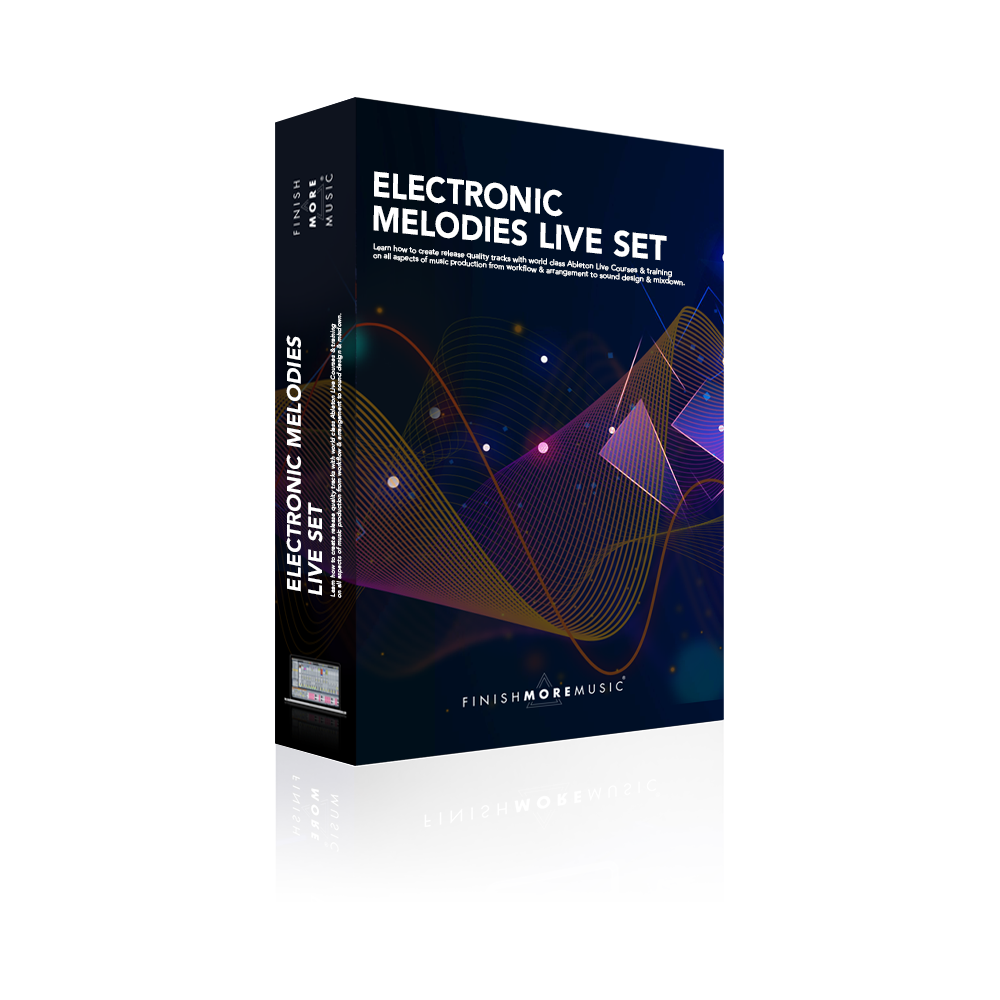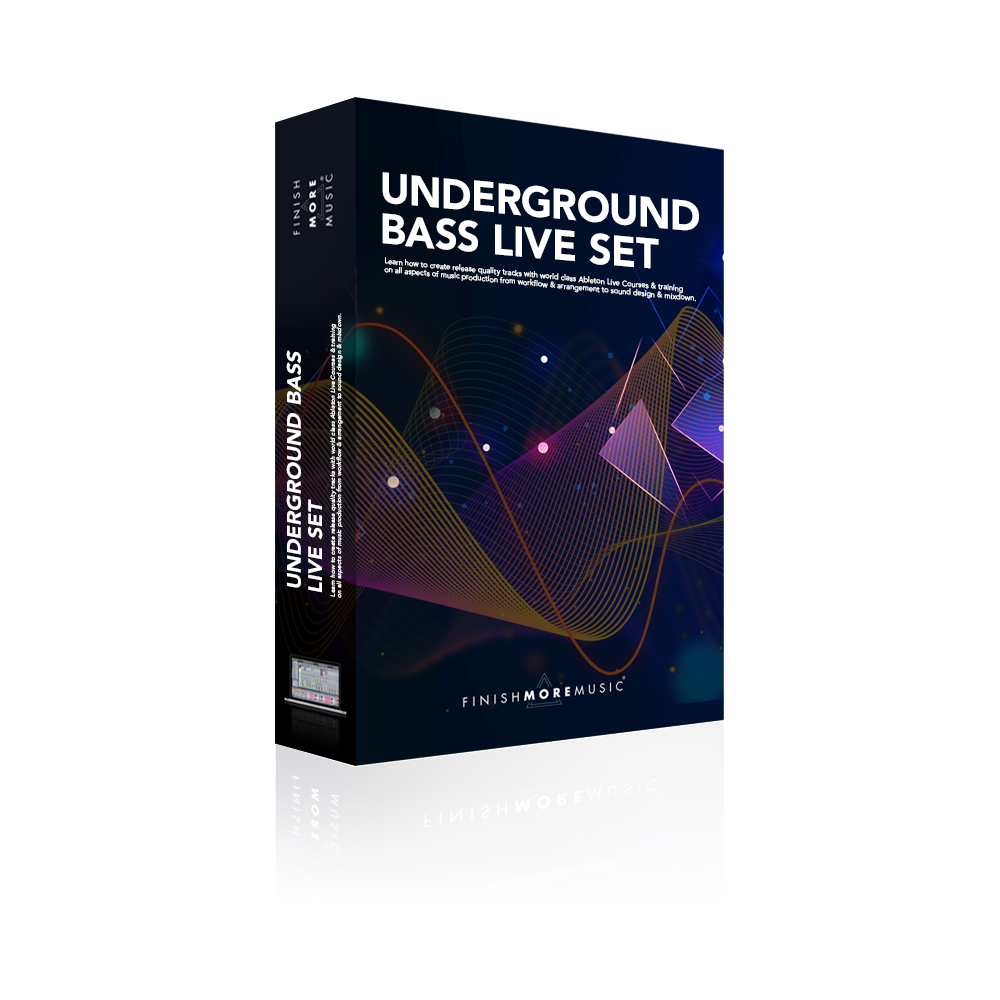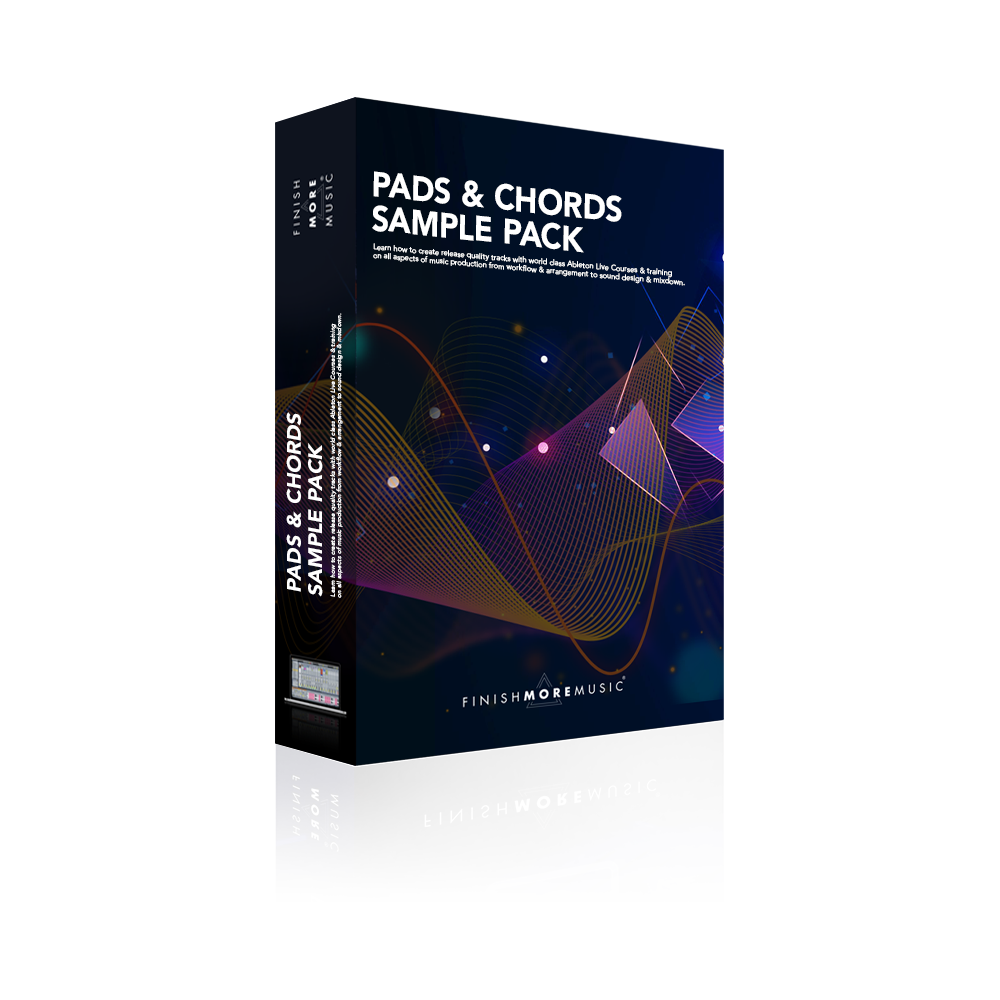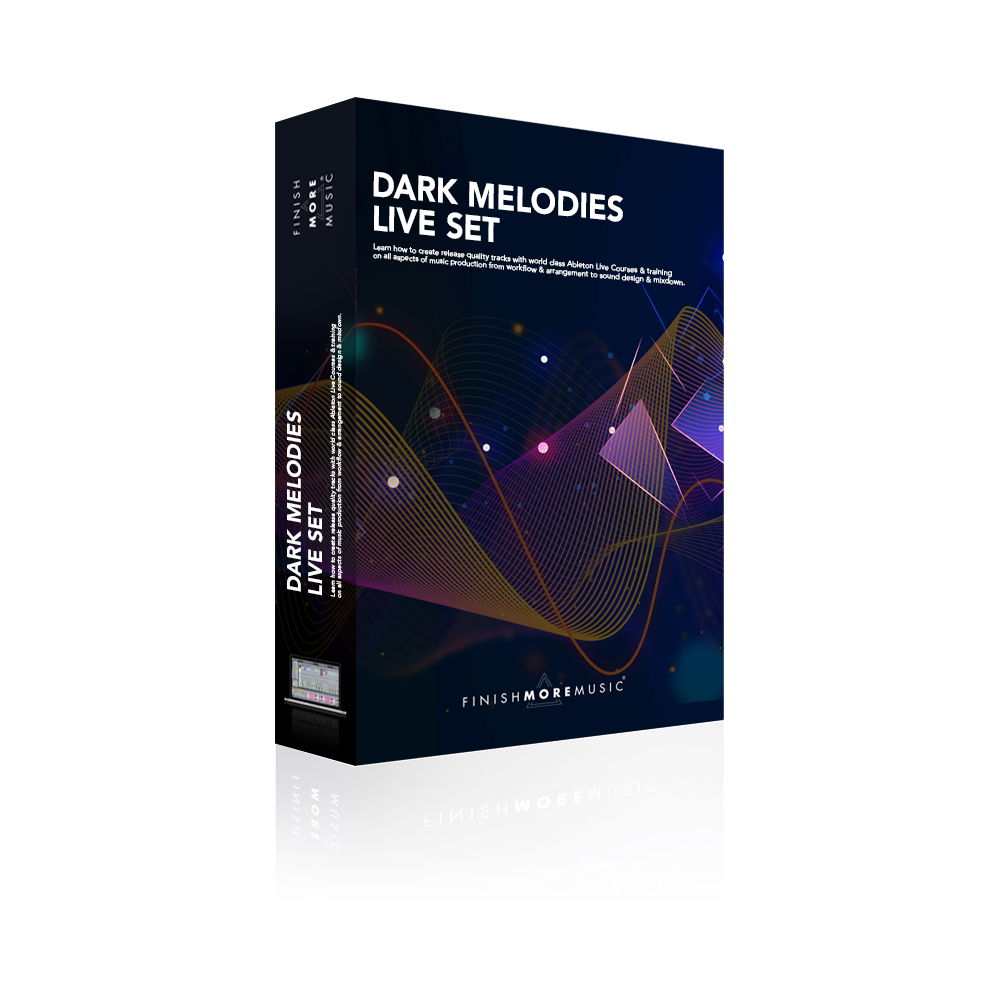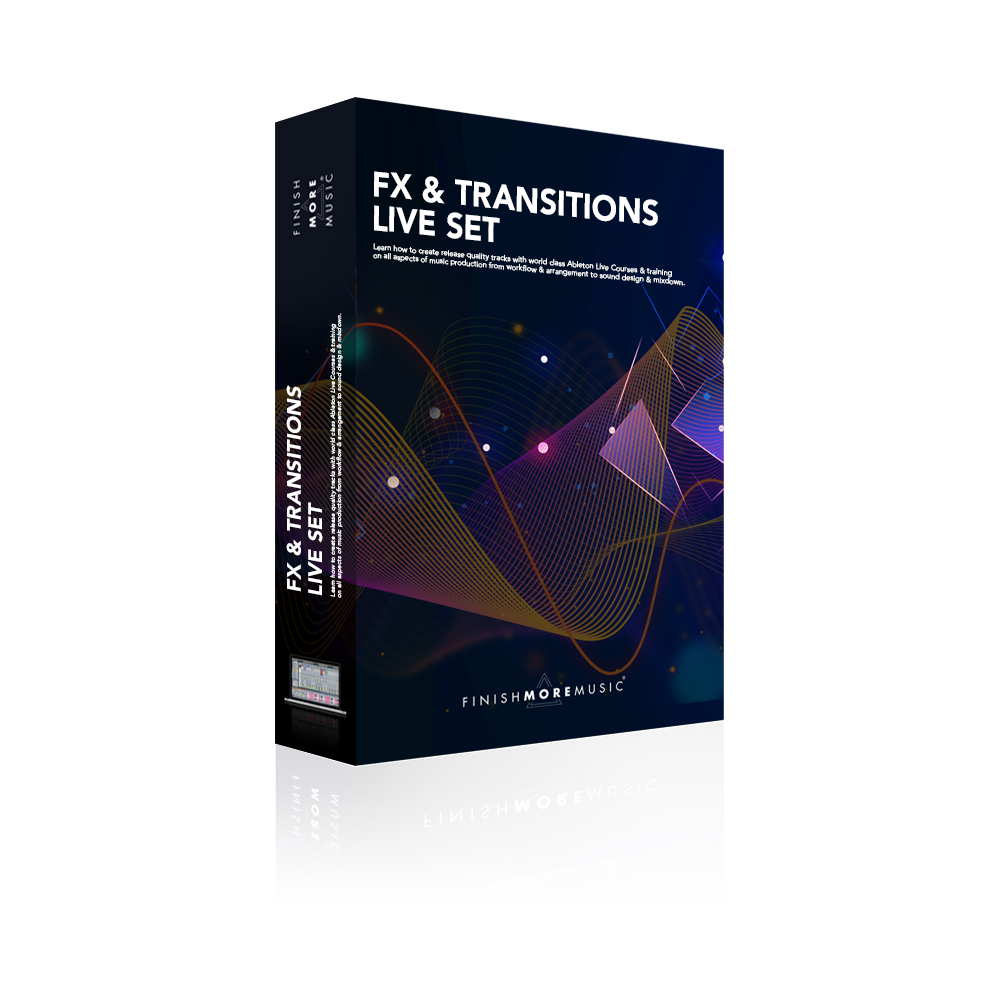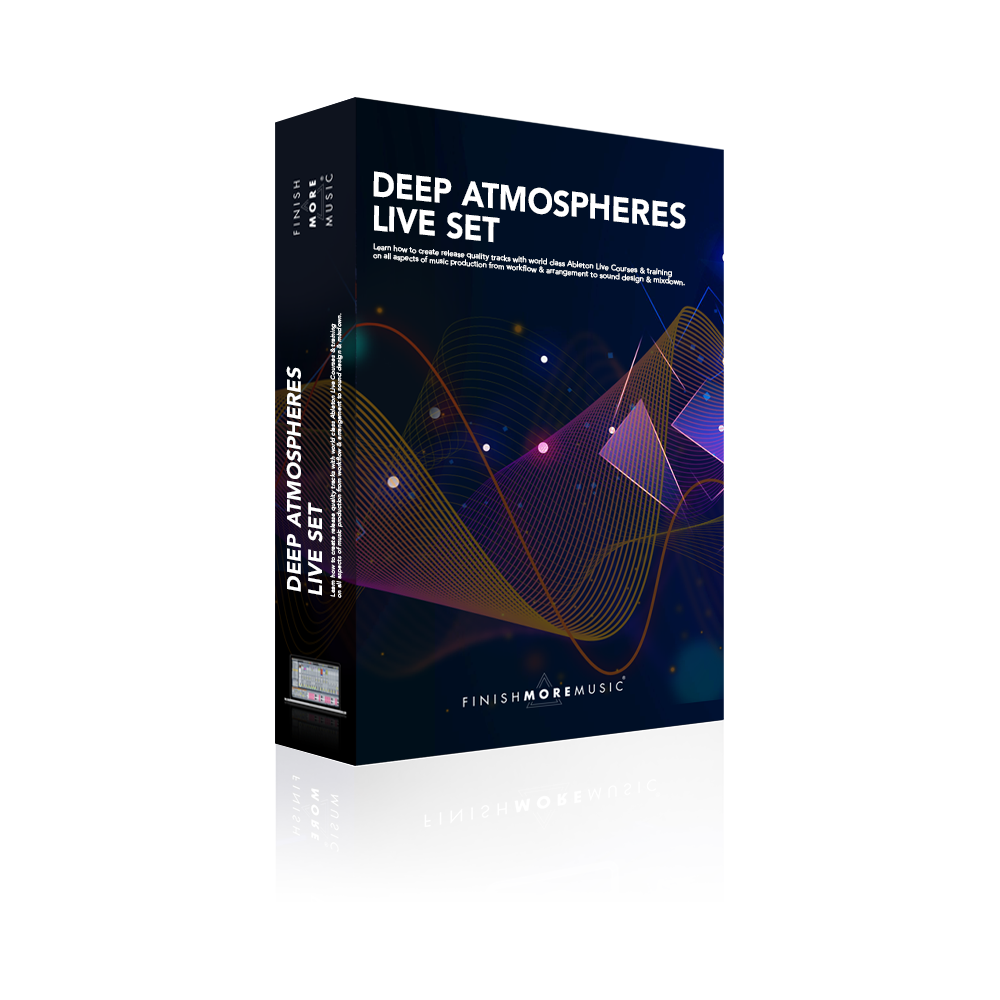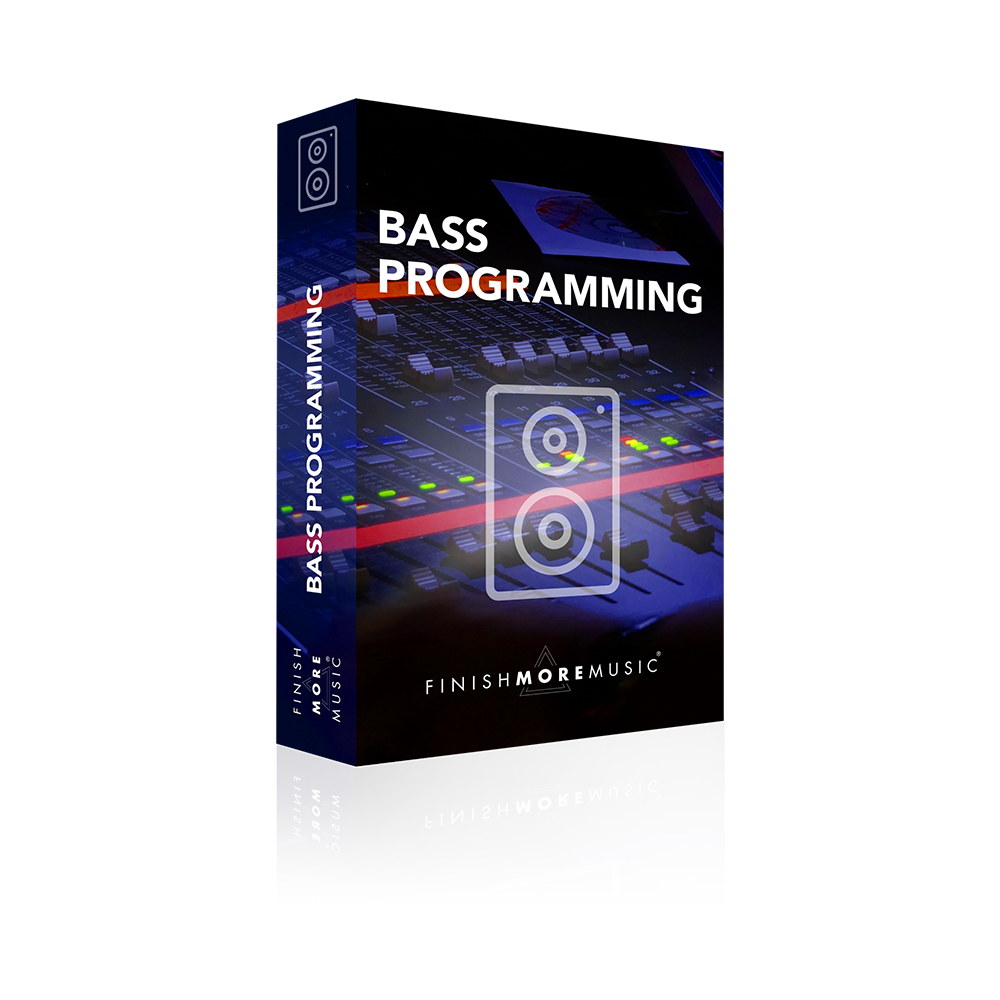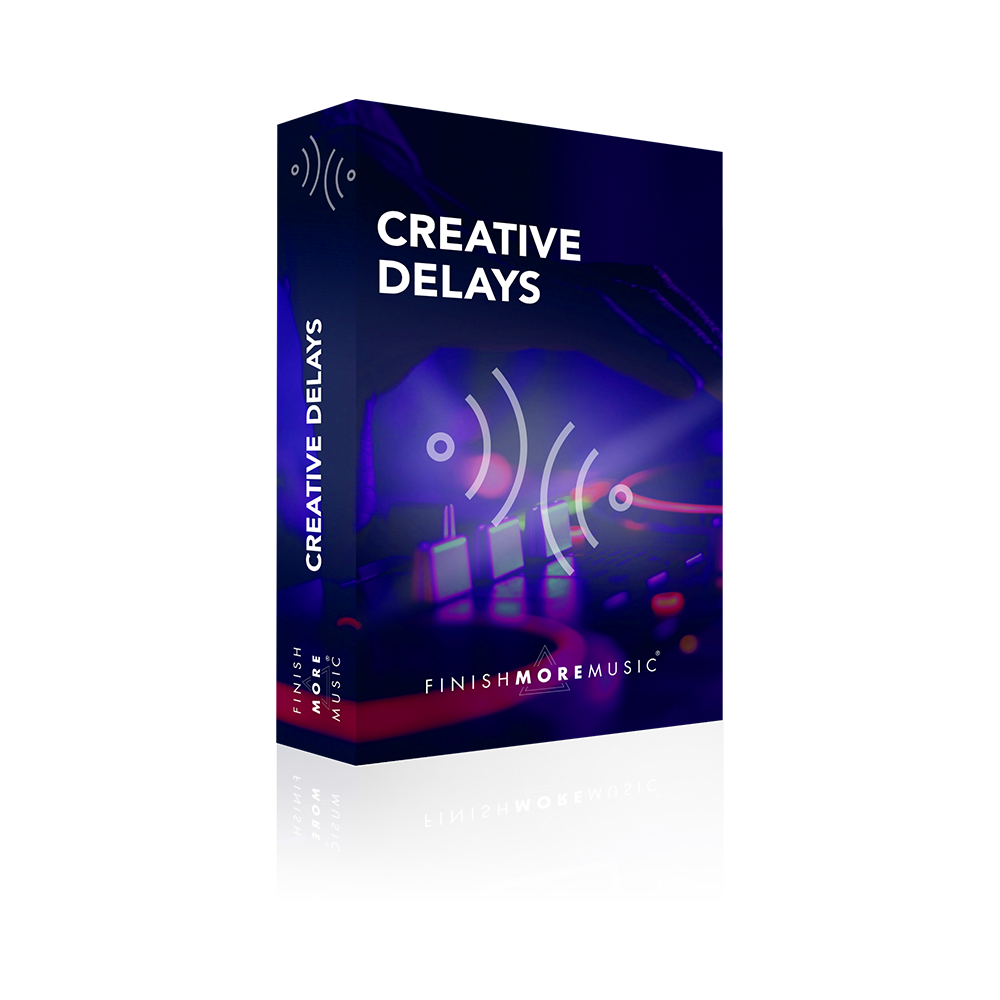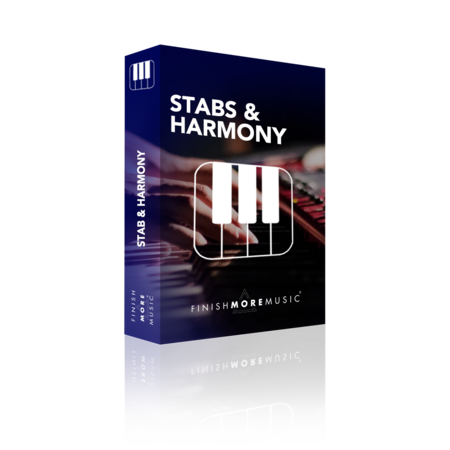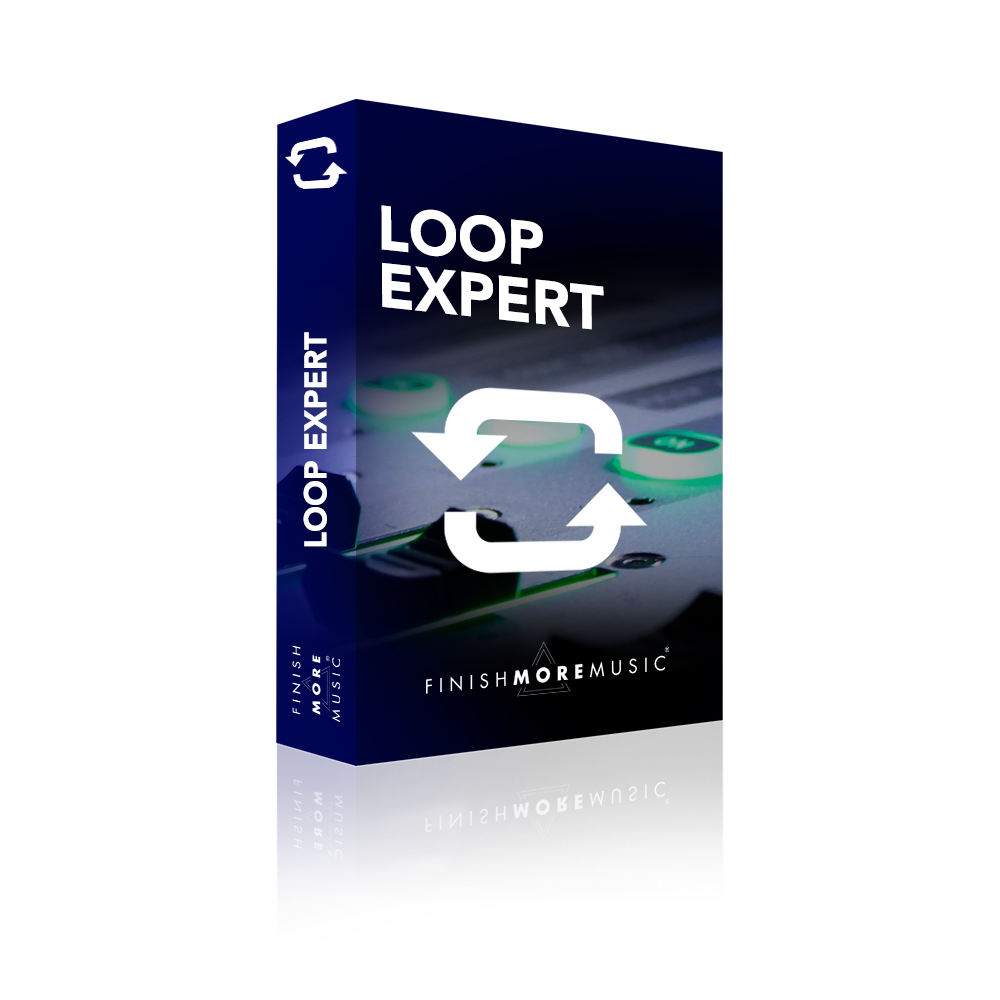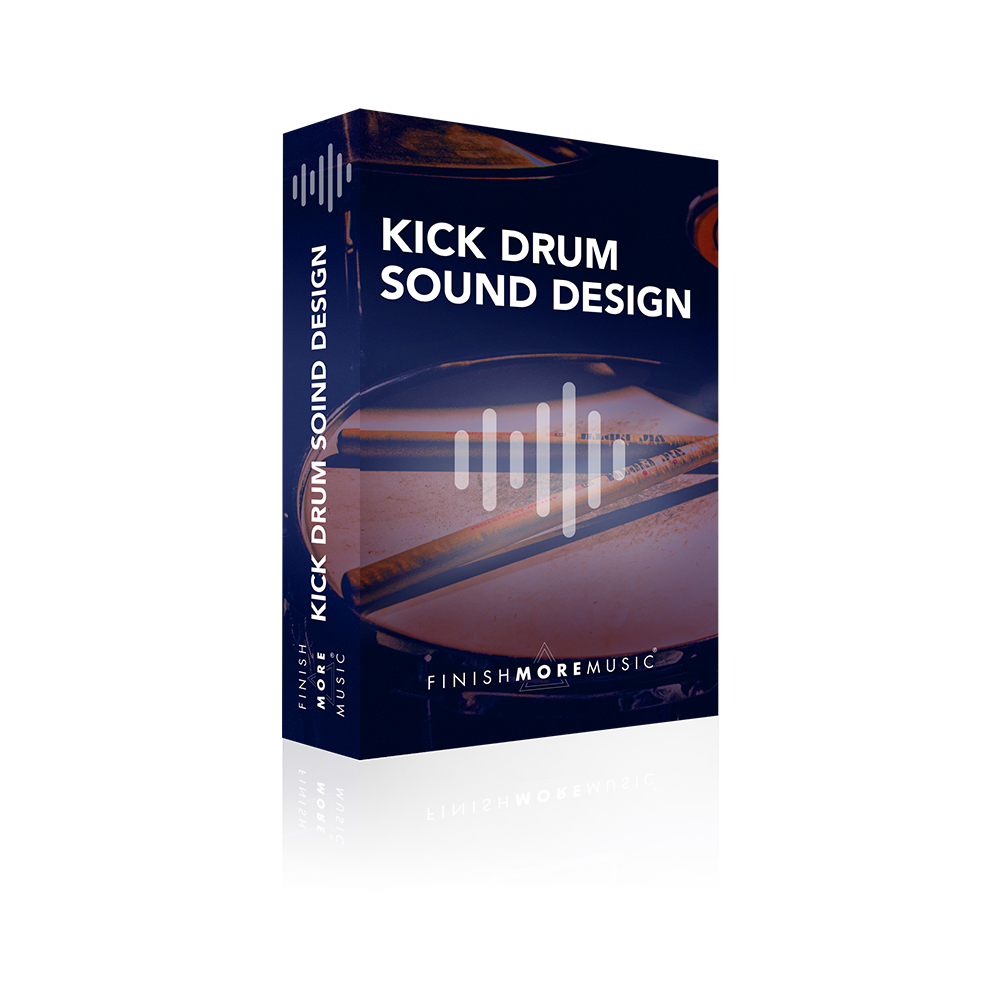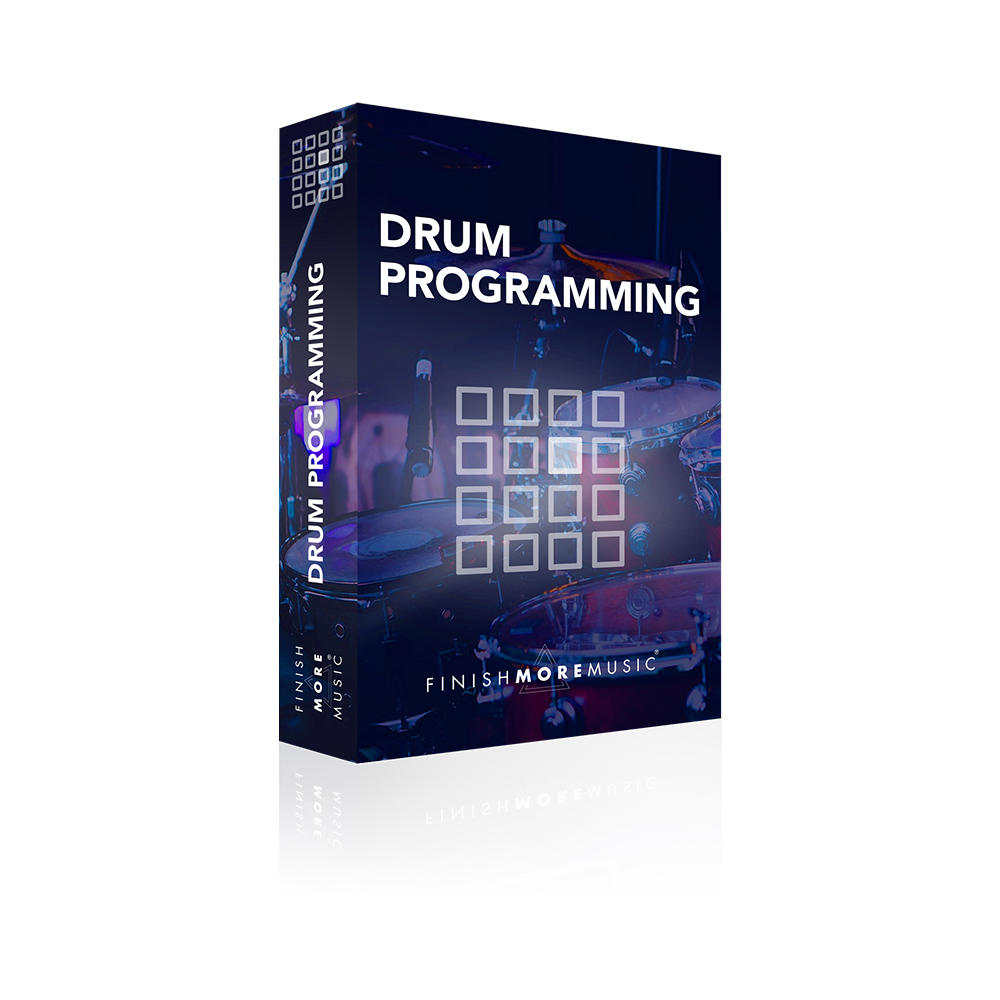Keith Mills: (00:02)
Hi, I’m Keith Mills. And this is episode number 89 of the Finish More Music podcast. And today I’ve got a really special episode for you. I’m joined once again by Matthew Benjamin, AKA Bushwacka, and this time his partner, Belinda Matwali, joins us to share her experience in meditation and the powerful benefits it brings to us creatives.
Keith Mills: (00:08)
So in this show, we talk about a new concept that they’re releasing that harnesses the power of both therapy and meditation to help creatives step into their power, experience greater creative flow, overcome challenges and blocks that are holding them back and live more empowering and overall energetic lives. Now, personally, I learned an absolute ton from this interview and I’ll be putting the lessons into practice myself. It’s a really deep session. We go in a lot of depth into these topics. So find yourself some space get focused and let’s dive in.
Keith Mills: (01:11)
This is the Finish More Music podcast, a show for underground dance music producers who want to finish more and better music, and to share it with the world. My name’s Keith Mills, and every week we’ll dive into the mindset creative strategies that will help you to move further, faster along your music production journey.
Keith Mills: (01:48)
Hello, and thank you for joining me on another episode of the Finish More Music podcast. So I’ve got a really exciting show for you. Something that I’ve been looking forward to for some time, you will remember that I recently had a fantastic guest Bushwacka / Matt Benjamin on the show. It was one of our most popular shows. Had loads of you reaching out to me to say how refreshing it was to hear Matt talking openly and honestly about the challenges and the struggles of being a creative and being at the top of the game. And we talked during the show about something that he was working on with his partner, Belinda, that was coming up that will positively impact creatives. It’s a new offering, a new service they’ve got. Well, it’s about to drop. So I’m delighted to say that they’re joining me today and we’re going to go much deeper into it. Very profound. You’re going to absolutely love it. I’m not going to ruin it just yet. We’ll get into it throughout the show, but Matt, Belinda, thank you very much for joining me.
Matthew Benjamin / Bushwacka: (02:50)
Thank you. Thanks. It’s great to see you. And then just thinking how enjoyable it was last time round. So it’s a pleasure to be back. Thanks for having me.
Keith Mills: (02:58)
Yeah. Awesome. Awesome. So I’m excited to get into this, but first, like how are you guys doing at the moment and , how are you feeling about the fact that there’s this new service, this new offering that’s about to drop?
Matthew Benjamin / Bushwacka: (03:12)
Exciting, daunting. We’re still tweaking everything but we’ve put a lot of work into this for a very long time. It started almost 18 months ago, from the beginning of our conversations to finished projects. It’s like a baby that’s just started off as no idea, became an idea, and then started forming. And now it’s about to be born.
Belinda Matwali: (03:43)
, what’s interesting is that, as he said, we started the idea 18 months ago and so much has happened since that time, but this feels like the most perfect time to be launching it.
Keith Mills: (03:59)
Yeah, totally. I agree. So let’s talk about the pandemic and the things that are going on at the moment, because I think you’re right. This is, , optimal. People need what you’re offering right now, more than ever, but just in terms of creatives in general I think they face a bunch of, I’m going to say unique, I think that’s fair to say, challenges compared to a lot of other people. Creativity can be a fickle beast overall, but in both of your experiences what do you view as the key challenges and the things that people face both in terms of their creative output, but also as performers and traveling and all of those things?
Belinda Matwali: (04:46)
I feel some of the biggest pressures for creatives, one of them is that we live in a society that values constant productivity churned out the same every day. And I really believe as creative beings, we work on a more cyclical level. Like sometimes that inspiration strikes you and you’re just all day in the studio or whatever you’re doing. And time stands still and you just get so much done and that flow state or part of the flow state is really allowing yourself like rest time to kind of rejuvenate. And then another cycle of that creativity can hit. And of course we’re all extremely unique in how things work for us, but that is how my creativity works. And I find it very stressful if I have to be in an environment where I have to churn out X amount every day. And I feel that’s really strong in the fabric of our society. And it really affected my own mindset and creative levels for a long time until I gave myself permission to really tune into my own flows. And, meditation was obviously really a big part of that realization for me and giving myself a bit of slack. So that’s been probably my biggest personal experience and what I see with other people as well.
Matthew Benjamin / Bushwacka: (06:09)
Yeah. And I hear what you’re saying. I mean, creatives are very renowned for having a multitude of ups and downs, even throughout the space of one day. We can go internally from feeling like that sense of achievement or that sense of accomplishment is happening in flow. And it can very quickly go to a sense of low self-esteem anxiety, a feeling of I’m not worthy, it’s not good enough. And also, feeling like we need to be on par with what other people are doing in our industry and , how social media plays into that now for creatives as well, that might be looking, especially in 2020, and they can’t really go out and tour and do anything and they’re looking online as the only way to like connect externally and seeing all this stuff that other people are doing or have done and how that’s then playing with their own creative process. How am I going to stay relevant? How am I going to get back out there again? Why didn’t I do what those people did? And so there’s, there’s all of these questions that can come up in the creative mind that can be quite damaging to our self-esteem. It can also take us away from being creative.
Belinda Matwali: (07:38)
I think when you touched on that, sorry, it was also the people pleasing factor and not everyone is going to, not every single person is going to like what you do. That’s happened a lot in my own experience, having to take on criticism sometimes from people. But I was working with a client recently who is a music producer and DJ. So I suggested that she make a track like just for herself and she’s just like, wow, that’s so alien. I’m always thinking about what are other people going to like, is this going to fit in? And I think that’s also a massive constrictive factor for creatives. So there’s just so much information that they’re trying to take in and be on that people pleasing.
Keith Mills: (08:23)
Yeah, totally. I mean, it’s, it’s interesting. You mentioned rest as well, because literally the last episode of this podcast I did was all about rest. Because I’d moved away from it. I’d moved into the kind of hamster wheel that you’re talking about, where I was all about productivity, productivity, create, create, create, create, had to get a load of stuff done, and I could feel the negative effects on me. And it was weighing me down very heavily and I had to take a breather and I wasn’t able to rest. And I didn’t realize it because every time I would do something that was rest, I’m fine if I go away on holiday obviously, I wasn’t really resting because the feeling of restlessness was there. And it was so strong that yeah, but you should be going and getting on, you should be doing this, which again, is kind of talking to what Matt was saying about giving yourself a hard time and the low self-esteem it’s like, what are you doing?
Keith Mills: (09:18)
Sitting around there doing nothing you shouldn’t be getting on, you should be doing this. So I guess this, both of these things are playing in even more heavily now that we have the pandemic, because people don’t have the connectivity that they once would have had. So there’s a lot of isolation. And as you mentioned, seeing things on social media might be for a lot of people, the only, or the main important stimulus that they’re getting, which can be pretty damaging at the best of times. But what do you view as being the, the additional challenges now that creatives the face in when already, as we said, there’s a little bit of a tight rope and it can be a bit of a roller coaster.
Matthew Benjamin / Bushwacka: (09:57)
I think that human connection is a huge one. If we talk about today, things could be a lot worse. I’m thinking back to March, April, where it looked really bad with the pandemic and the lockdown was a real lockdown. , you stayed in your house, you didn’t go out and we didn’t know how many people were going to die or how quickly, , so on top of whatever else you might be going through in your life, creative or not, you had this whole huge fear and uncertainty going on, and then it’s how it’s played out throughout the year for people trying to get back out there again trying to find ways, trying to find ways to be allowed, to connect with their music in particular like performing, whether it’s live bands, whether it’s DJs, whether it’s people that want to go listen to live bands and DJs, the fans, , I mean, let’s not, let’s not completely make this all about the producers and the DJs. What about the music lovers that want to enjoy everybody else’s creativity and how that played on people and brought anger, fear and anger and more frustration.
Matthew Benjamin / Bushwacka: (11:17)
And, , I think now we’re at a point where there is a bit of hope, but we’re not there yet. So it’s like, how do we navigate this period? The period where it sounds like we might all be allowed to go and connect again quite soon, but allegedly these numbers are going up and more people are getting sick so how do we navigate our way through that? And I think that those challenges, particularly for touring musicians or artists, DJs, anyone works in the industry that involved putting on these events, being part of them, staging them, like the engineers, the roadies, the bar staff, everybody, how can they navigate this period where they’re not allowed out? We don’t know when we’ll be allowed out. We think we’ll be allowed out soon, but we still don’t really know. And I think in the last couple of months, people have started to get incredibly frustrated and stressed.
Belinda Matwali: (12:27)
Yeah. I think everything you said there is true and it can be a double-edged sword. The uncertainty, it can take you down that path of doom and gloom, I don’t know what’s happening. It can also open up, well, what do I want to change in my life? Do I want to be creative in a slightly different way? So there is that energy of both the closing and an opening, depending on how you want to move through it. So I’ve seen with a lot of people, it has actually changed the direction of what they’re doing with their creativity and their music, which has also been really inspiring. I’ve seen lots of people up level with their training and doing amazing things online. So it’s, yeah, I can definitely see both sides there.
Keith Mills: (13:18)
Yeah, totally. It makes perfect sense because I think with the uncertainty we can easily fall into the problem framework of starting to make predictions about the future. And they’re predictions of doom and gloom, which is easy to do, and then ruminating on it, you can kind of get stuck in that downward spiral. And particularly then if you’re on your own, and if you start to filter out good news and see all of the bad stuff on the internet, that can be a nightmare. But as you said, Belinda, and one of the things that I talk to our community about all the time is what if we tried to shift from a problem focus to an opportunity focus. What if we said, okay, yeah this sucks and this sucks, and this sucks, but, how do you use that time to level up your skill set? What could you do differently as a creative? What avenues are there to explore? We know that things aren’t perhaps ideal and there may be not as we want them to be, but we can live in that feeling of everything is bad and difficult, or we can try and navigate a different, more empowering, more inspiring route forward, which I think is going to play nicely into what you guys are offering overall now. So kind of the big unveil, I guess, what is about to drop? How does, how does it work? Let us know, please.
Matthew Benjamin / Bushwacka: (14:41)
So again, as we mentioned earlier it kind of started about 18 months ago. We’re launching a company called Listen Up Therapy and Listen Up Therapy is our offerings of meditation, meditation practices and teachings, which Belinda is an incredible master of and has been following that path for many, many years and therapeutic practices from my end, which is psychotherapeutic counseling from myself and my team. So what we’re offering is the complimentary benefits of therapy and meditation. And we are aiming them at the creative industry. We both have a lot of history in creativity and in those industries one way or another, and have both had profound experiences of how our lives can change and transform when we use both meditation regularly and some kind of therapy and how that’s just been an incredible experience. And we feel that we’ve got a lot to offer people in terms of giving them these opportunities and being able to use our own experiences and knowledge to improve people’s lives.
Keith Mills: (16:11)
Yeah, totally. Now I want to deep dive a little bit into your backgrounds because one of the things that I think is so powerful and I just want to lean on one thing here, cause you’ve mentioned listen up therapy, but I love the wording that you guys have got. Listen up and listening, listening up for the therapy, listen in for the meditation. That for me, it’s kind of genius. So I’m going to put it out there right now. It really is superb how you’ve got those two phrases and they’re both so strong. They say very succinctly what it is all about, which we’ll go into in a bit more depth in a moment. But one of the things that you guys are bringing to the table that as far as I know, nobody else is, is the background that you have and the experience you have, because yes, there’s a million meditation things out there.
Keith Mills: (17:01)
There’s loads of apps and things like that. And they’re good. I’m not going to take anything away from them, but having somebody who actually is in this world, in the music world, you understand the people who are designing courses and training that is tailored towards the very people that need it in this case, I think it’s very powerful in the same, obviously for you, Matt, with your experience in therapy. Can you both speak a little bit to your backgrounds in this area as well? Because I know you’ve both been on incredible journeys that have been benefited both from therapy, meditation and so on, but can you chart the path a little bit for everyone? Because I think it’s fascinating.
Belinda Matwali: (17:43)
Yeah sure. So meditation journey, I’ll start from where that began, because that was also my dark point and obviously all of us at some way in our past seem to have that. And it’s from that dark point that we turn around and we start looking for answers. So, 10 years ago I was here in London, working hard and partying just as hard, if not harder. And like a lot of people that just wasn’t sustainable for me, but the partying was a real escapism because I was feeling stressed about life. On paper, everything looked great, but I just felt really empty and not happy inside. And so it was from that space that I started looking for something, I didn’t know what it was, but it ended up being meditation. And I traveled for two years and met a lot of amazing people and tried lots of different things.
Belinda Matwali: (18:43)
And then when I was in India I found a really amazing ashram that just, I had this recognition when I was there. It was like, Oh wow. I didn’t really know what I was looking for, but I got this insight. And suddenly now that it’s like, okay, I needed to come here to learn these tools. And I guess when I started learning meditation, I had almost a cultural stigma of like, oh okay I need to live like a monk now and I can’t go out. But music has been a passion for me ever since I can remember, as a toddler I was playing my dad’s record player and touching all the things and I just love music. And a big part of my journey was actually being okay enough in my individuality and my confidence that I was going to still resonate with the things that lit me up and make me feel good.
Belinda Matwali: (19:37)
So that was still being able to go out in a club even though I was sober, and feeling really comfortable and confident in myself and really enjoying myself, and then equally okay when I was going into the meditation environment and this was 10 years ago, I think this is much more acceptable now, but that was a big part of the journey, just that confidence to really be in my authenticity and not feel like I have to submit to any social ideas about what a person who meditates should be your and things like that. And I think that’s really important for people. A lot of people who I work with, they have an issue. They might be, , DJing in the club and they still feel really self-conscious about not drinking, even though that’s their path. They’re like, , when someone hands me a drink, I don’t know what to do. And part of it is really building that rock solid confidence in yourself that you feel okay to say no, that things aren’t right for you. And so that’s been a big part of my journey, just the meeting of those two worlds.
Keith Mills: (20:45)
Yeah I think that’s really powerful what you’re as well, the concept of, so I used to DJ as well, and there were many times when I was like, right, I won’t drink tonight. And then I did, , I would go out and it’s, it’s just embeds you in that environment. And so having that self-belief, and I guess I always talk about awareness. I think that’s so powerful. It’s something that meditation brings you, but being able to have the awareness and not get swept up in the moment to actually come out with the outcome that you wanted at the end of the night or whatever you’re doing, I think super, super powerful. And so Matt, obviously we know a bunch of your background, I know you’ve had meditation as well as part of the therapy going on. We didn’t discuss that last time, how those two things intertwined for you.
Matthew Benjamin / Bushwacka: (21:34)
Yeah. I mean, for me, my inroads into meditation began quite a long time ago. I would take a little bit of an interest. I’d meditate from reading some books. I was quite interested in Buddhism for a while which I still have a strong connection with a lot that the principles of. But I did dip in and out with various journeys with meditation, just a little bit. And then with my musical journey and as a touring DJ and my rock and roll aspect of my life that went with that, I was in and out of recovery from drink and drugs. I was trying to get clean and sober for many, many years with various degrees of success. So I would have quite long periods of clean time, but then I’d go back out and party hard again and then pick myself up and go back.
Matthew Benjamin / Bushwacka: (22:37)
And in the summer of 2015, things had got pretty bad for me. So I did something I’d never done before and took myself out of the loop and went off to rehab in Thailand place, to a place that was recommended to me by a dear friend, and I stayed there for six weeks. And while I was there, there was a very strong message that connected for me counseling therapy, mindfulness and meditation, and more and it had a profound impact on my life. I’ve never looked back. So while I was there, in the first week and once the dust had settled, I started meditating every day in my room. I was also doing one-to-one counseling.I was doing the group counseling sessions, there was mindfulness and meditation teachings. And there was yoga nidra as well, which we can talk about a little bit more in a bit, but there was a combination of all these things. And what I found was that doing these things every day changed something in me.
Matthew Benjamin / Bushwacka: (23:46)
I started to really feel the benefits of how the meditation is giving me more clarity. I can see things more clearly, colors are brighter, sounds are more defined. My mind has quietened down a little bit and since coming out of meditation and then doing things like counseling, I started to get more of the benefits from the counseling because I was more grounded and that really kind of sparked this interest in me in why we are the way we are, why we do the things we do, what makes us tick. And, , some of it was cognitive behavioral therapy based counseling as well. When I left that interest never left me. So I signed up online to do a psychology degree with the Open University, and I ended up changing direction and doing a master’s in psychotherapy, which I’m still doing.
Matthew Benjamin / Bushwacka: (24:59)
I’ve taken a gap year to launch Listen Up Therapy with Belinda. But I’ve qualified as a psychotherapeutic counselor. And so, , the journey continues, but really coming back to Listen Up Therapy was that profound experience of a combination of meditation and therapeutic practices like counseling and then the yoga nidra as well, which was a real journey which I feel has got me to a point where I’ve been able to completely chang my life. I’ve been able to do a 180. I’ve been able to do that 180 and go in a completely different direction, but still have my roots in music and still be very passionate and very connected with that world. But before I went on that journey, I was stuck. I couldn’t see the wood through the trees. And I think one of the things we really want to be able to offer people is a solution to not being able to see the wood through the trees, a solution to being stuck. Tools that will allow you to become unstuck in a good way, ?
Keith Mills: (26:07)
Yeah, totally. And one of the things I’m picking up from both of you is, you’ve both been on this journey and one of the sayings I love is transformed people, transform people. You’ve been there. You’ve been through these things. You’re able to bring this, you understand very on a very deep level, the people that you’re working with. But the other thing that’s really jumped out to me there is that this isn’t a case of, Hey, we’ve been on this journey and now we’re going to help you. You’re both very much invested in continuing to grow and learn and deepen your practices. So you’re constantly leveling. You’re already at an amazing place to help people, but it’s like this, isn’t just a thing that we’ve learned and we’re going to teach wearing this. We live this basically. Yeah.
Matthew Benjamin / Bushwacka: (26:53)
And , I have to say, Belinda is, she’s incredible. She never stops learning she’s all day, every day, at every spare moment got her head in a book, or in a talk, or a course, or podcasts, and it’s just this constant continuing personal and professional development. And it blows my mind how devoted she is to furthering her knowledge and her curiosity and her thirst for all of these things that really excite her it’s amazing.
Belinda Matwali: (27:29)
I’ve been really lucky to be able to find some amazing resources and teachers. The ashram I go to in India is basically like a university for meditation. It’s got like 30 different levels that you can do with them, but you have to wait three months minimum between each level. So they’re really encouraging you to digest and take what you’ve learnt like back out into life. And yeah after 10 years of studying it, you just find it’s infinite. There’s always more things to learn. You’re always learning more things about yourself andmeditation is such a broad topic. Often people think, Oh, it’s just one thing I’m just sitting here and breathing. But there are so many different techniques and it’s an infinite journey into yourself, even though a lot of us use it for relaxation, you can take it a lot further than that.
Keith Mills: (28:34)
Yeah, totally. So I think that kind of leads us really nicely into each of the separate disciplines, if you like. And then we can talk about the synergy of the two and obviously myself having an ongoing kind of mindset coach therapist that I work with plus meditating, I can definitely speak to this with you guys as well, but if we just focus on the meditation side of things and I know that you’ll be offering courses, there’s also a chance to work personally with you, because as you said, this, this can be nuanced. It can be, it can fit to the person if you like, it can be really bespoke. What do you feel are the main benefits that creatives take from a meditative practice?
Belinda Matwali: (29:23)
Yeah there’s a few here. I think, again, I’ll talk from my personal experience. Sometimes, for me personally, I can really overthink things. I know this is not everyone, but my I have a very busy and active mind and sometimes I have like a million ideas on the go and this really leaks out a lot of my energy. And through my meditation practice, it’s almost like I’m bringing all that energy back in, I’m resetting brain waves. We can get into that. You have quite busy brainwaves, what we call beta, and you’re not in a very good learning state when you’re in those beta brainwaves. But in meditation, you naturally drop down to an alpha or theta and it allows you to think in multiple ways. I think that’s why when I’m in meditation, it allows a lot of things to be sifted out and then I’m left with a clearer state of thinking afterwards, like okay, yeah, I’m going to pick up on this idea or this is how I’m going to continue it.
Belinda Matwali: (30:27)
So it’s a great reset when you’re in a creative process and your mind is like, okay, I don’t know what to do next, and you’re almost stuck. I definitely always take time out to meditate or go for a walk at that point just to reset my mind. And leading on from that, I get pretty much all of my creative ideas, maybe not when I’m in meditation, but afterwards as well, , they come to at different points. So again, it’s my stop gap if I’m working on a project and I feel either I’m dry for ideas. Before speaking about having too many ideas, but if I’m drafting them, I will come into that meditative state. And just coming to that rest state that you were touching on earlier as well. So it’s my source of creativity.
Belinda Matwali: (31:20)
It’s a source of quieting my mind, I guess they’re the two main things. And also when I’m in meditation, I’m kind of exercising or increasing my awareness and that can help me often connect dots between different ideas that other people might not see. So sometimes other people say my work’s a little bit eccentric or eclectic and I’m like, wow, I never would’ve thought of that. You’ve put this in this together. And I think that also can come from the increased awareness from meditation. Instead of just looking at one thing in front of you, you’ve got a 360 degrees awareness. You’re just seeing more things in life where you’re out and about. So there are a few different ways how it helps me creatively.
Keith Mills: (32:08)
Yeah. I love that. So kind of what I’m hearing is, is in many respects, it helps you to get out of your own way, which is easy to do as a creative, when the mind’s firing off and you start to try and oversolve things in your head. And it’s just, as you said, can’t see the wood for the trees. And by taking that step back, you’re clear in all of that and letting the ideas, the flow come through you. Now one of the things that I think a lot of people would have tried meditation and potentially tried something and decided it’s not for them, but as you mentioned, there are multiple strands and disciplines and things like that, which of course, when it comes to working with you in a bespoke level of course you are able to help guide people, but can you just talk a little bit to that as well, this idea that some people will just pick it up, give it a go and chuck it away because maybe that particular type didn’t work for them, but perhaps a little bit about the variety of different techniques that are available.
Belinda Matwali: (33:13)
Yeah, sure. Well, I’ll just start with very, very traditionally some of the meditations were designed for the monks that had done years of yoga and years of discipline. And this was kind of like the mountain spot experience. So that would be things like Zen meditation, or sitting and watching your breath. So they already were having quite a disciplined life. They weren’t having the challenges that we might have today. So when someone from our modern age just tries to sit down and meditate, we tend to overthink about so many things. We have so many more decisions that we can take in our life, which in one way is amazing, but also really stressful. Like people back then would just be like, okay, my dad looks after horses so that’s what I’m going to do.
Belinda Matwali: (34:08)
They weren’t sitting there thinking, Oh, which career path should I take or where should I live? So it was a much more simple time. And within recent years there has been some people create new and different meditations that techniques like active meditation, where you do movement beforehand. That is a type that I teach as well where you’re actually moving the body and movement techniques. And then when you do sit down, it’s just so much easier to connect with yourself. And also in the listening and meditation course, one of the techniques that I share is how you can come into a state of relaxation relatively quickly. So I think what’s really important is how you are priming yourself to get in what I call the meditation bandwidth. So the meditation techniques, aren’t the meditation per se.
Belinda Matwali: (35:06)
That’s just the preparation to get you into this state that I like pulling the meditation, bandits, where you feel connected and you’re just in flow and you’re there. So we need to find techniques that kind of suit where we’re at. So for example, one day, if you’re feeling angry, it might be hard to come even straight into your heart. If someone’s doing a heart focus meditation, you might need to do something to diffuse that anger first, because otherwise it’s not a vibratory match. And that vibration of anger needs to be released before you can sit and be calm. I mean, it’s the same. When people come to my active meditation classes. If they’ve been working all day and frustrated, they need to release that. And then once that’s released, it’s much easier to come into this state of balance. And then finally, I just want to share like, especially creatives will get this, so we’re all creative in different ways, but we’re very individual, we’re all very unique.
Belinda Matwali: (36:06)
And so what works, one person doesn’t work for another person. And even inside the meditation experience, how we experience our innner senses, it’s also going to be different for different people. Some people are very visual when they go into the meditation. Other people don’t see anything, but they’re very kinesthetic. They feel a lot, or they hear a lot or they have a clear knowing. And for me, I’m not so visual in meditation. So if I was starting out and I went to the meditation and they were talking about visual stuff, they’d be like, I can’t get this. I can’t do it. So when we’re nurtured just like with our creativity, that we all have these individual skills, that is a massive light bulb moment for a lot of people that I work with. And they’re like, Oh, okay. It’s been working in a different way for me, but I needed someone to shine a light on that. So I could see it for myself.
Keith Mills: (37:01)
Yeah. Wow. Basically, I’m just going to kind of leave a wow in there. So I’ve done meditation for a while. I had no idea of the depth of the things you’ve just said, I’d be like, Oh yeah, I get that. And that makes sense. Like, I’m really interested. I’m gonna say right now, I’m going to be really interested in working with you. Because what I can hear as well is that, although I love my practice, it can almost certainly be optimized and I can take more from it just from listening to what you’re talking about. So even people who already are meditating and not just people who’ve tried it and thought maybe it’s not for me, will actually be able to take a lot by going deeper and exploring different techniques. They didn’t know. Were there certainly this idea of matching a particular technique to the state that you’re in, I think is really powerful because there are certainly times when I sit and I find it really, really difficult. And now what you’re saying is making me think, Oh, wow, there are pieces to the puzzle that I’m missing here. And I’m a huge, huge advocate of meditation. It’s been huge for me. So I really want to learn more of this. And speaking from my own experience, I’ve tried various things. My first introduction to it was a book that I have.
Keith Mills: (38:23)
And I read that and I used to sit back when I worked in the city for like 20 minutes in the morning and that was kind of watching the breath, but I struggled with it. I’m not great at watching the breath it turns out. I’ve tried things like Headspace ,fantastic app, but the guided meditation thing wasn’t as great for me. And I’ve found personally the most effective thing is just having like chimes or a kind of gentle sound. And maybe it’s because in my whole job and everything I’ve ever done really is around audio, it’s where I thrive. I seem to be able to much more quickly get into the state, but the other things you’re talking about, fascinate me. So I’m dead excited to learn more on a personal level. It sounds absolutely superb.
Keith Mills: (39:11)
So Matt. Therapy. Let’s talk about another piece of the puzzle here. I think people have predetermined ideas about what therapy is. Maybe there’s some stigma attached to it as well without actually really truly understanding what it is and what the benefits are. So can you tell us a little bit about what being involved and working with a therapist is and does and I know obviously you’ve had experience from both sides of the table, so to speak.
Matthew Benjamin / Bushwacka: (39:43)
Sure. Well, yeah, you’re right. There are lots of different types of therapy. There are lots of different types of counseling. And people often come in wanting to change something about themselves. There’s something they’re not happy with. If there’s something they’re struggling with or they’re stuck with, and it’s very uncomfortable, a lot of the time. And what can happen quite often is, people want a set of tools very early on. They want to know where’s the instruction manual. What can you tell me what I need to do to fix this? So there are people that offer that kind of therapy. I mean, the short term, the CBT work of cognitive behavioral therapy is very solution-based in terms of looking at your core beliefs about yourself. For example, if you believe that you’re not good enough, or the world is out to get you, that’s a core belief, how do you challenge that?
Matthew Benjamin / Bushwacka: (40:48)
And what can you tell yourself about that that counters that belief about yourself? But the thing about things like CBT is it’s a bit of a band-aid quite a lot of the time. It will kind of patch over something until the plaster falls off and then the scar is still there. So the therapy really, it can be a lot of things for different people, but first and foremost, I think it’s important to know that it’s a safe space, a neutral space, a non-judgmental space for you to be able to come and talk and talk about whatever it is that you feel you need or want to talk about. But a lot of people struggle to find someone to talk to that is neutral, non-judgmental, and is in a safe space. Because we all need relationships and friends and, and we have all have various experiences with that.
Matthew Benjamin / Bushwacka: (41:47)
But when you start throwing opinions, advice-giving conditions in, that’s not the same as therapy. It can be quite helpful, but therapy is really about exploring what’s going on for you. What is it that you believe about yourself that is leaving you, seeing yourself, the world and others, the way that you see them. So what’s your story. What’s, what’s your belief around self and others? What’s your sense of safety in the world? Like where does that come from? What is it that you’ve learned or been conditioned to believe that makes you feel that all these external factors or things that are going on inside you, make you feel the way you feel. And I suppose in some ways it can be a bottomless pit, that you can spend a lifetime looking at these things.
Matthew Benjamin / Bushwacka: (42:49)
And particularly when it comes to identity, if I’m not a product of my environment, if I’m not my artist persona, if I’m not my DJ persona, if I’m not my, this is who I am because of what I do persona, then who am I? And what tends to happen quite often when people are faced with the idea that they’re not the person they identify with from a couple of years ago or 10 years ago and they’re in that transitionary period where they’re ready to make a change, or they think they’re ready to make a change, but they realize that if they make that change, they don’t know who they are. That often gets people running off in the other direction. And what I feel my job is, and the job of the therapist is first and foremost, is to create a strong, solid working alliance, a therapeutic relationship with the client.
Matthew Benjamin / Bushwacka: (43:42)
Somewhere the client can come and know that that relationship is based on trust. It’s based on experience and it’s based on being listened to. And I think one of the things that happens so much now in society, more than ever is people don’t really listen to each other. You might get as far as hello, and then the listening stops when you’re out in social situations. People only want to connect the way they know how. How many times have you been in a restaurant or a cafe or anywhere, and there’s people sitting together, but they’re all looking at their phones, or they might be in the middle of a conversation and a text message comes through and the conversation ends. And there’s that lack of connection. And with the therapy, it’s really about listening. And I suppose, it ties in with, listening in and Listen Up. It’s a place to come to be listened to, to be heard and to be able to help you look at how you’re experiencing yourself and others in the world and what that might look like from a different perspective, what’s stopping you from moving on in your life. Why are you getting stuck? Where are you getting stuck? Why? What’s happening for you?
Keith Mills: (45:01)
Yeah, totally. What you were talking about being heard is really powerful because there is so much noise in the world at the moment. People do need to be heard. And even if you are heard by someone that, a lot of the times they have, when I say they have an agenda, I don’t mean that necessarily as a bad thing, but if you have relationships with people and there are things that they want from their lives as well, advice may come from a slightly biased place. Whereas when you’re talking to a therapist. So when I talked to the lady that I work with as well, there is that bond of trust, but there’s all, there’s someone there who doesn’t have a hand in the game anywhere. They’re actually, they are totally neutral, as you said. And so, that the questions you’re getting asked and the place they’re coming from is very pure, which I felt I personally find to be very powerful.
Keith Mills: (45:58)
Now the other thing that I think is maybe we can go a little bit deeper with that, Matt, which you touched on at the end, which I think is really important is that people are often looking to make a change or there’s something that they really want. And they’re very passionate about achieving in their life, but no matter how hard they try, they seem to be kind of in their own way. And often what they want is totally achievable, but the beliefs and the story that they’re telling themselves is the very thing that’s stopping them from getting what they want. And it’s only really them. So for me, I found, like therapy and work of my mindset coach to be really powerful in aiding that, but perhaps you can talk to that a little bit as well in your experience on that side.
Matthew Benjamin / Bushwacka: (46:46)
Yeah I can. Everyone is very unique and individual but we have a set of beliefs and those beliefs have come from, they’ve been inherited at some level from, from our caregivers. And what tends to happen is that we live out our lives in the here and now reinforcing our beliefs about ourselves, our script, we’re living out our script , we’re reinforcing our script beliefs. So out of consciousness, we will set the wheels in motion, or we will run through a series of transactions, of interactions, that will then confirm what we really believe about ourselves, which might be, I’m never going to make it, or, I should, I should be seen but not heard or, they’re a multitude of these beliefs that we pick up in early development. And this can be pre-verbal. This can be before we’re walking and talking. It doesn’t mean, and this is really important in my belief.
Matthew Benjamin / Bushwacka: (47:57)
It doesn’t mean that our parents are bad people necessarily at all. This can be a product of being smothered, being loved too much of being like wrapped in cotton wool so that, you’ve been so protected that you then don’t know how to experience others in the world because you’ve always had somebody else there protecting you too much. There are lots of different factors that can play into it. But, what the point is that a lot of the things that we do are played out to confirm those beliefs.
Belinda Matwali: (48:34)
So I think what you’re saying there is like, in our conscious mind, we’re like, yes, I’m great. I’ve got all these affirmations all day long. But the conscious mind does make up 5% and the unconscious mind is the 95%. This is where, the work Matthew does, especially when you’re going into psychotherapy, is really subtle, but profound. Because that has been able to be dug up. And then I guess from the meditation perspective, it really comes into its own with this because we get out of our conscious mind when we’re doing the meditations. And this can be a really rich place to sometimes plant an affirmation at the end of a meditation, because you are in a different state of consciousness.
Belinda Matwali: (49:29)
And then there’s another more specific type of laying down meditation. That’s called Yoga Nidra, And one of the many, many kind of purposes of this practice is actually to move through self limiting beliefs, which in the yoga tradition, they call semskaras. Which is all programming, whether it’s good or bad, we all have programming to some level, as Matthew was saying, it happens at different levels of our life. But Yoga Nidra is another really big passion of mine and the science behind the practices that we do drop brainwave states. We’re able to access that state of our 95% unconscious and the part of the practices that you do drop in an affirmation. It’s an, I am statement called a sankalpa. So if your main script, to use the language Matthew was using before, Is I’m not worthy. Then you’re sankalpa might be like, I am worthy. And when you’re dropping it in at that deep subconscious, or over time, it really starts to take root. And this has been really profound for both of us. Like Matthew mentioned, he was doing this when he was in rehab as well, because as you said, it is so frustrating when you’ve got the affirmations there all day long, and you’re like, why are things not working? And that’s because this 95% of us in this unconscious state,
Keith Mills: (51:04)
I love this. So I want to kind of dig in a little bit deeper. Okay. So in which one of these, are we saying that the therapy is where you tend to bring these things from the subconscious mind into the conscious mind? And there’s a saying isn’t there, that what we can’t see or what we’re not aware of, we can’t fix basically. So is that bringing it forward? And then the yoga nidra is where you can deepen the practice by helping to overwrite or redress the balance of the limiting belief with the empowering belief, or do both of these practices bring forward these things from the subconscious mind?
Matthew Benjamin / Bushwacka: (51:46)
So just keeping a line down the middle of the practices. And the reason that I think we’ve both had a profound experience of doing meditation and yoga and counseling and how that’s ended up, it’s been very very powerful but, just talking about the therapy side of things, I don’t go into the unconscious with my client because it’s the unconscious, they’re not conscious of it. That’s one thing me as a therapeutic counselor knowing, and I think an awareness that might be what’s going on, but really, it’s about what’s happening in the room between us what’s happening in the space between us. What’s not being said is what’s being said, so there’s the verbal transaction and there’s the nonverbal transaction. There’s the alterior transactions that’s going on between you and what I look at within the therapies, where is that coming from?
Matthew Benjamin / Bushwacka: (52:48)
Is that coming from an adult place? Is it coming from, is it coming in the here and now as an adult, is it coming from a parental message that we’ve received as we’ve been growing up? Was it because it coming from a child state, , from, from a child, you go stay, where’s that coming from and how has that been experienced? And, you know that’s really where a lot of the the work happens. Is what’s happening, experientially, what’s happening, relationally, what’s going on between us? Why do I feel sad right now? What is it that what’s happening here? And, and we explore that.
Matthew Benjamin / Bushwacka: (53:26)
So there’s content and content is important, but process is really, really, is really, really important. And it’s when over, and this is why, therapy is often long-term, it’s when the same things keep coming up over and over again, but you’ve been working long enough for the client and build up strong enough alliance and you know them well enough to be able to start to pull it apart and say, well, this experience you’re having right now connects to these beliefs that you have about yourself and these beliefs that you have about yourself have come, because X, Y, or Z said X, Y, and Z to you. Or this is part of your conditioning, so it’s really about untangling that and allowing someone to look at something from a different perspective. That’s the therapy side of it, the unconscious, it’s all there and it’s all happening, but that’s not where I go. Whereas, as Belinda just said, with a lot of the practices that can open that up, which is why doing both of these things can be so powerful.
Keith Mills: (54:48)
Yeah, totally. I mean, there’s a real synergy here. Now. One of the things that you’ve at you put on your website was a window of tolerance. Now, I don’t know what that is, but I was like, I’ve got to ask I’m dying to know. So it’s something that I know that the synergy between both of the different disciplines that you have feeds into this. Can you explain that a little bit for me please?
Belinda Matwali: (55:17)
So the window of tolerance is a space where we feel like we can really respond to life. Like you have energy, something bad happens in your day. And you’re like okay, I’ve got this thing, or a challenge at work and yeah, you feel like you have that energy to respond. And in the diagram that often accompanies this term underneath that window is a place where we’re feeling really low in energy. It might be depression. But where we just don’t have any energy to respond to life. Like sometimes we wake up and the alarm clock goes off for work and you’re just depressed and you just can’t get up like you don’t care. There’s a lack of energy there. So someone can be coming to you saying the house is on fire, but you just can’t respond.
Belinda Matwali: (56:07)
And then above that window, there is a hyper arousal state, which we kind of touched on earlier, the overthinking, the anxious, and again, you’ve got so much energy and you’re scattered in a way you’re not able to really get any traction or respond to life. Someone shares something with you, they need help with, and you kind of just freak out and have a melt down. So that’s kind of explaining, I guess, the spectrum. And so the window of tolerance is the kind of sweet spot in the middle where we’re like, okay, I can, I can handle what’s happening in life. So the reason why this model is kind of explained or used is that we or people want to encourage others to get into the window of tolerance. And the way to get back is generally through mindfulness, meditation, and grounding. So whether you are hyper aroused or hypo in the examples, when you come back to your breathing, you are putting more of your energy back into your body and not leaking energy out.
Belinda Matwali: (57:10)
And as you start to get more energy and breathe you’re more able to respond to, , whatever’s going on. And I think people sometimes overlook the power of breathing becausecause it happens for us all day, every day. But I wanted the free resources on the website, have a simple breathing exercise, but explain when you’re breathing into your belly, it does actually signal to your nervous system. I’m safe. I’m okay. I’m all good. So people often use this example when we talk about stress and stress response of, , the caveman and the saber tooth tiger and their stress. And so our ancient nervous system when we saw a tiger we’d be running. And when you’re running, your belly is not soft. Your diaphragm and your abs are in tight and you’re just, running for your life.
Belinda Matwali: (58:13)
So when we’re not breathing into our belly, that can be signal to our nervous system like, Oh, we’re in stress, and it actually creates those stress chemicals in the body. And it’s such a epidemic that we don’t breathe into our belly because it’s societal conditioning to look slim and a slim flat stomach or our fashion. Just so many things like, in a lot of my old jobs, I wore such tight clothes. There was no way I could breathe into my belly properly. And that in itself can put us in a state of anxiety, like all the time. So when we breathe into our belly, that can help us bring us back into this window of tolerance. We come into the rest and digest mode, our parasympathetic nervous system, and we start to have more energy rather than leaking it out. So that way we can kind of feel like we can deal more with whatever life is dishing up to us that day.
Keith Mills: (59:12)
Right. I get it. And I’m imagining that if someone is able to find themselves in that state, would that be a more ideal state to be like Matt in a therapy situation as well?
Matthew Benjamin / Bushwacka: (59:25)
Well, the window of tolerance, that that model is referred to within therapy as well. And, we think about hyper and hypo and really we want to widen that window so there’s more room to be in there without reaching those states. And that comes from a lot of exploration and over a long period of time, but it’s really about understanding where those feelings come from. When you start to be able to understand where those feelings come from and really understand that they don’t serve you in the here and now those, those defense mechanisms that you had when you were little to survive, because when you were a baby or a little kid, and if you didn’t use those defenses, you couldn’t get through, couldn’t get by in life. They won’t serve you now as an adult in the here and now, but we still hang on to them. And every situation that comes along, the brings up those same feelings is connected to that defense mechanism. And so, really when you start to understand that those feelings are not relative to what’s going on in the here and now, because you needed those defenses, then you’ve got other ways of experiencing life now, and your window of tolerance can grow, ?
Keith Mills: (01:00:46)
Yeah, totally. So what I’m really hearing here is, you can hear the benefits of therapy, the benefits of meditation when they come together, it’s super powerful, but every step of the way, I’m constantly listening to this thinking. I can totally see how this helps someone who’s a creative, who’s able to. Now we’re talking about potentially have more energy because a lot of people so have day jobs as well that are creatives or at the moment they’re just there. They are most stressed out. The world that we’re living in at the moment is stressful. You’re able to get out of your own way, have more energy, get into a better creative or a better state in order to access your creativity. And then obviously when you are creating things and that you have got the output and you’re not jammed up, it kind of feeds back into itself a little bit as a cycle, you feel better in this whole cycle, keeps going to make your, I guess, your life more relaxed, more enjoyable, and more, more energized. And all of these things are feeding into each other. Would that be a good summary?
Matthew Benjamin / Bushwacka: (01:01:52)
I’m also thinking quite broadly that the issues, the presenting issues of the individual coming into therapy, won’t always be directly related to their creativity or to them being creative. It will be a multitude of things, and that’s, that’s life. That’s how life goes. Where we’re coming from with this therarpy is our deep understanding of that world and what it’s like to be at different ends of the spectrum within that world at different times. And so this isn’t just about getting people back into their creative flow. It’s a lot, lot bigger than that really. It’s really about, giving people tools to navigate life in all walks of life. Really.
Belinda Matwali: (01:02:44)
I think when you’re feeling more balanced in all the ways, even though that’s quite a bland word, that is going to spark your creativity. Like when you feel good about things in life, when you’re mentally balanced, emotionally balanced, spiritually balanced, the creativity is like the flower that comes out of of all that work that you’re doing. So whether it’s something in the subconscious or an overthinking mind or relationship that is causing you stress, I think that all has knock on effects to creativity. And, the work that we’re doing is going to have, many, many benefits for people. But I think, for me anyway, when I’m in my creative flow, that’s when I normally feel like, okay, my self care is good and everything’s really going well, and the creativity is like the flower.
Matthew Benjamin / Bushwacka: (01:03:36)
And, let’s just talk about music for a minute. And I don’t mean techno. But songs. Most songs are about love. And a lot of songs written about love are written by people who are in some pain through some kind of a relational experience, and that’s part of the amazing creativity that comes out of strong, really strong emotions, whether it’s heartbreak, sorrow, anger, in being in love, happiness, and being able to channel that that’s one thing. But the creative block can come at all different times, but really this is about how can you use these tools? How can therapy help you? How can meditation help you in your life to ground you and give you, more presence, more awareness, and allow you, I feel very strongly from personal experience that meditation, regular meditation that has been carefully put together and shown to you from Belinda who’s had a huge amount of experience in this can allow you to benefit from everything else in your life. But the therapy as well. If you’re meditating regularly and that’s helping you become more grounded and more aware, you’re going to get more from your therapy, because you’re going to be more aware. And so that’s the cycle really.
Belinda Matwali: (01:05:11)
I just want to touch on as well with the creativity thing. Because my friend sent me a post she posted the other day about a story that some creatives have that I need to be in emotional pain, or I need to have some kind of drama going on in my life and clients again, have come to me for this. They’re like, but I need that. That’s my creative source. And this particular post was talking about like a new paradigm or a new idea that we don’t have to hold onto this story that we need pain to be creative, that it can come from, the other end of the spectrum as well. And I just thought that was a really interesting point for discussion because there are so many things embedded in us that things have to be a certain way for us to be creative.
Keith Mills: (01:05:56)
Yeah, totally. And I mean, just to talk to the cycle that Matt was mentioning, that really taps into my own experience as well with this. So what I have found is that when I’ve uncovered, kind of core beliefs you talked to the idea of I’m not worthy, I’m not good enough and all of these things. And when they’re there, that’s kind of a tree, that’s got a lot of other core beliefs that can be hanging off of it. And when I’ve discovered those through reflection, for example, and then go into my meditative practice and exactly as you were mentioning, I had no idea if the yoga nidra and so on, just in my normal meditative practice, I will then be looking at the, I am, that’s reversing these things. And so that then deepens the work for me very powerfully, but then often I’ll have an insight somewhere in the meditation or just after it that I will write down and then take back into the session that I have with my coach.
Keith Mills: (01:06:57)
And we’ll talk about that. And so that cycle really resonated with me because it has and I know I’ve mentioned this to you guys before, but I once said to my to my mindset coach, I said I love the work that we’re doing, we’re addressing this inner bully, inner coach kind of balance. Because I’ve always given myself such a kicking, I used to work in the city. I was a head hunter, very competitive sales environment. And I used to think that I was successful because of the negative way that I talked to myself. Like someone constantly poking me with a stick to drive me. And I thought that that was always the key to my success. But of course it’s taken a lot of my energy and ruminating and beating myself up.
Keith Mills: (01:07:45)
It drains you. It’s not aiding you, but it was all I knew. So now that I know that actually turning up for myself as a companion is a way stronger way to do this. But as we were redressing the balance, I said to my coach, look I’m really studious. I want to do well here. How do I speed this up? And her kind of piece of wisdom was you don’t speed this up, but there are things you can do to deepen it. And it turned out that the meditation has absolutely done that. And I have so much more awareness about myself. I’ve got a long way to go. I’m not kidding anyone with this. I think you mentioned as well, it’s a never ending journey, but there’s a lot way, a long way for me to go personally.
Keith Mills: (01:08:28)
But the way that these two things have fed into each other, they are far greater than the sum of their parts has been my experience. And definitely saying, I’ll lean into. And as I mentioned, I’m definitely keen to find out more, Belinda, about the meditation side. Becuause you’ve sort of opened up a whole new world that I didn’t know existed. And there’s just me sitting here for 20 minutes listening to my chimes and that’s been awesome. But the things you’re talking about, like, wow, how exciting to get to explore this world in even more depth. So I’ll definitely be tapping you up on that front. So right now, how do people, because I’m sure loads of people would be excited to find out more about working with you guys. What will be the next steps for people now?
Matthew Benjamin / Bushwacka: (01:09:20)
Well, if anybody is interested, the next step would be to go to our website and have a good look around and they can contact us through the inquiry form. There are links into Belinda’s courses. There’s, there’s lots of information and rich content there already about the meditation. There’s lots of information about the team of therapists and we will take it from there or we’ll come back to people and arrange consultation calls and talk about what they’re looking for. What they’re hoping to get from whichever services that they would like to get involved in, whether it’s therapy or meditation or both. And we we’ll then put them in touch with the right therapist or into Belinda’s meditation course and also who will be in the very near future.
Matthew Benjamin / Bushwacka: (01:10:18)
We’ll be doing some group work as well, which I’m not going talk to you much about now, but we’re going to be offering group support, wellbeing, mindset courses for people that are going to be very, very useful, there will be a lot of shared experience. A lot of connectivity. Because I think one of the things that we are aware of that has been the most challenging for people right across the board has been a lack of connectivity because of everything that’s happened this year as well. And so getting like-minded people together in a group and us faciliatating it and bringing in both of our shared experiences and allowing that to kind of help people to find their way a little bit is something that we’re working very hard on. So that’s coming soon as well.
Keith Mills: (01:11:08)
Yeah. Also I love the way you’re both kind of constantly innovating and coming with new ideas. And certainly from, I can definitely say how powerful this online connectivity is because obviously Finish More Music is a community and the community have come together more than ever this year because of what’s going on externally, people leaning into it. It’s a safe space, which exactly what you guys have already spoken about with what you’re offering as well. But it is a safe space. We don’t have any egos, nobody flies around belittling. Anyone else, even though some of them are really far on their journeys. Some people are professionals in the electronic music industry now, and everyone is really supportive and it’s made a hell of a difference even when we just jump on live to hang out just that connectivity is so important.
Keith Mills: (01:12:02)
So again, , I mentioned last time when you’re on Matt that I thought you were on to something with this, which you definitely are. And I have absolutely every confidence that what you’re going to do from a group angle is going to be a success as well. I think it’s amazing. So I wish you guys, every success with this, we’ll put all of the details in the show notes for this podcast as well. So everybody can instantly dive in and see anything. Is there anything you feel that we’ve missed that you’d like to cover? I know we’ve, we’ve covered a bunch of stuff. It’s been awesome. Thank you. I just want to make sure there may anything that I may have missed, you may have missed along the way we get covered off because it’s such an important topic.
Matthew Benjamin / Bushwacka: (01:12:38)
Yes. One thing for me, and that is if anybody’s struggling and is a bit hesitant to reach out, just reach out. We’re going to be available to have a consultation, to have a chat, and if you’re feeling it, you’re feeling it, but if you’re struggling and you’re a bit stuck or you’ve got stuff going on, reach out to us. Don’t be afraid to pick up the phone. Don’t be shy. Don’t be nervous to send us an inquiry form and tell us a little bit about yourself. We’re doing this to help people. We’re doing this to help as many people as we can. We know what it’s like to be stuck in so many different ways and we want to help people. So don’t be shy.
Keith Mills: (01:13:27)
Yeah. Awesome. One of the things that always comes across when I’m talking to you is how authentic you are as well. So as you said, people don’t have anything to lose. They’re not going to be judged in any way. It’s obviously completely anonymous. If people just want to have that initial conversation, I think it’s such a powerful thing to do. So I’ll echo that, you guys are awesome unquestionably.
Matthew Benjamin / Bushwacka: (01:13:50)
And just to follow that on if someone wants to come and talk to us because they’ve got problems with being shy, then maybe they can get of their friends to apply for them.
Keith Mills: (01:14:02)
Awesome stuff. Well, listen, thank you. I had a feeling this was going to be insightful. I didn’t realize how much, I mean, I’ve learned an absolute bunch and I know that everyone’s going to love this. As I say the last time you were on it was such a popular episode and I would love to catch up with you again, to see how this is going at some point in the future as well. And particularly as I mentioned, I know you’re both really innovative in your thinking of new ideas. So what we have now is awesome, but the things that you learn, I instinctively know you’re going to develop this to help more and more people, and this is going to grow. So I definitely am going to touch base and drag you by even if it’s screaming and kicking on for an episode in the future, but you’ve been awesome.
Matthew Benjamin / Bushwacka: (01:14:46)
Thank you very much,
Keith Mills: (01:14:50)
Guys, take care and best of luck with that.
Keith Mills: (01:14:53)
Okay. So a huge thank you to Matt and Belinda for sharing so much knowledge. Some of the things we discussed here really opened up new and exciting areas for me to explore. I’ve already experienced as you heard the power of therapy and coaching combined with meditation, but hearing about even more synergistic ways to take advantage of both of these areas has certainly sparked a lot of curiosity in me and I’m excited to dive in even more deeply. So I hope you felt the same. I hope you enjoyed the episode. The full details for Listen Up Therapy are included in the show notes, finishmoremusic.com/089. And I’d love to hear from you on Instagram. Hit me up with a DM at @iamkeithmills. What most resonated for you in this episode?
Keith Mills: (01:15:44)
What did you connect to the most that Matt and Belinda shared? I’d love to hear your perspectives on this one and be sure to subscribe to the show so you don’t miss out and do leave a review. Let me know your thoughts. And as I’ve mentioned before, if there’s any areas you’d like me to cover in the in the podcast, any questions you’ve got that you’d like me to tackle, please do hit me up. I’ll stick them on the list. And if it’s something I think I can help with, I’ll absolutely direct an episode in that direction for ya. So all the best do take care and I’ll catch it in the next episode.
Keith Mills: (01:16:16)
If you’re serious about getting your music heard and climbing the ladder as a music producer, one of the skills you absolutely must master is remixing. That’s why I’ve put together a brand new completely free ebook for you called the art of remixing. It features the most prolific remixes from my Finish More Music community, sharing their strategies for creating successful remix projects, ready for you to share with the world. So jump over to www.finishmoremusic.com/remix and download your free copy now. You’ll learn technical setups for creating your remix, how to add your own flair whilst respecting the original artist’s track, how to create quickly to a tight deadline, how to extract melodies and harmonies, and so much more, as well as taking the opportunity to get more of your creative output into the world. Remixing is an amazing tool for building connections with other artists and strengthening your relationship with label owners in short remixing is essential. Try to think of a top level producer who doesn’t have a bunch of great remixes to their name. You can’t right? So make sure you master the art of remixing so that when your opportunity comes, you’re ready to take it with both hands and accelerate your growth in the music industry. The ebook is totally free. So dive over now to www.finishmoremusic.com/remix and grab your copy. See you in the next episode.
